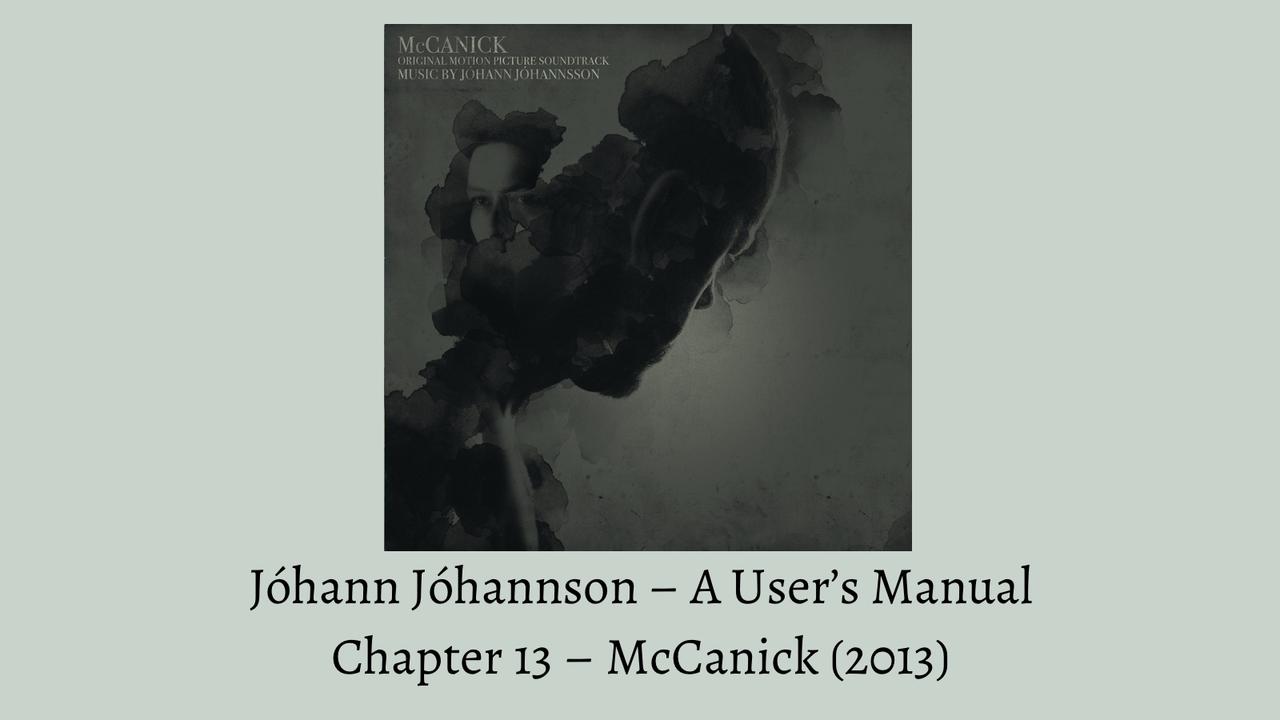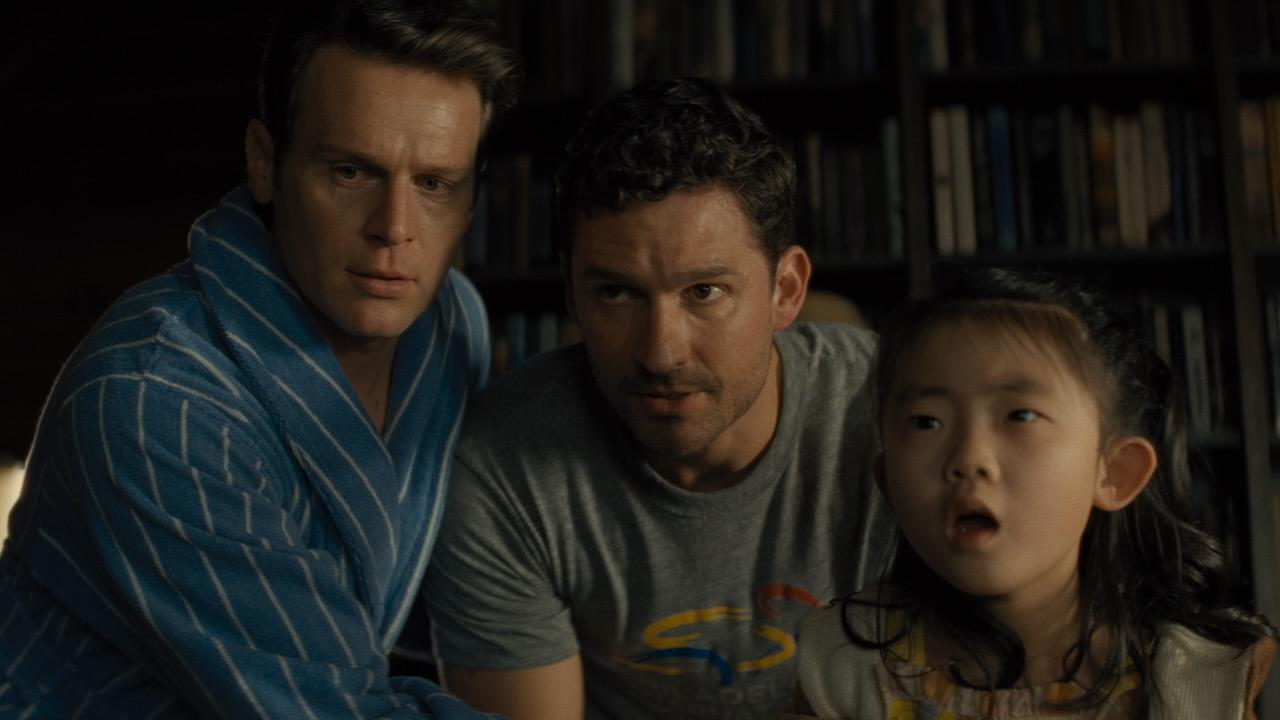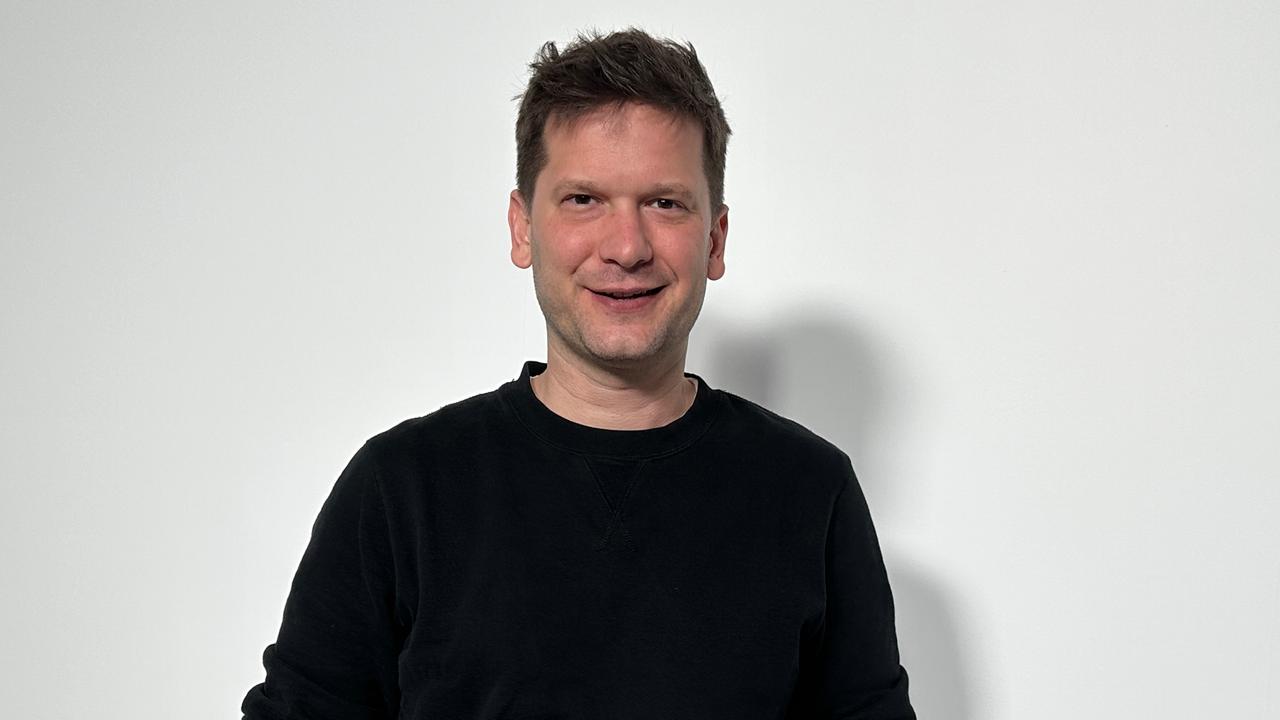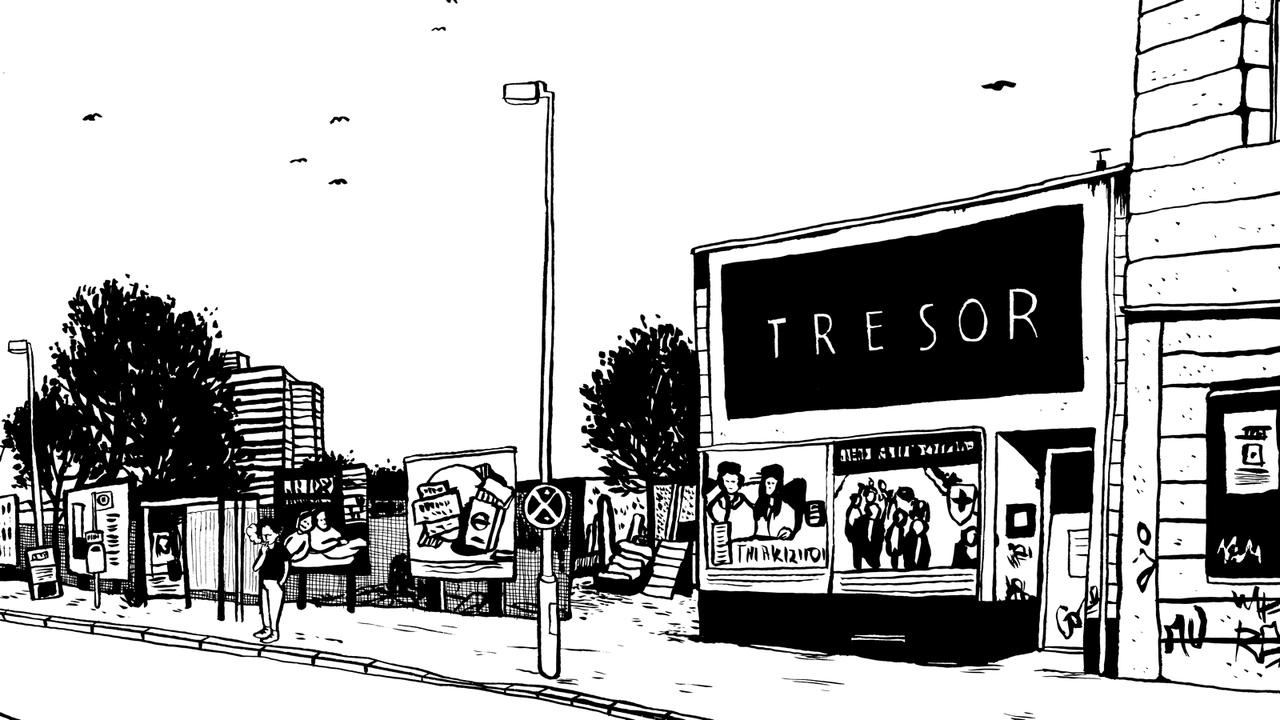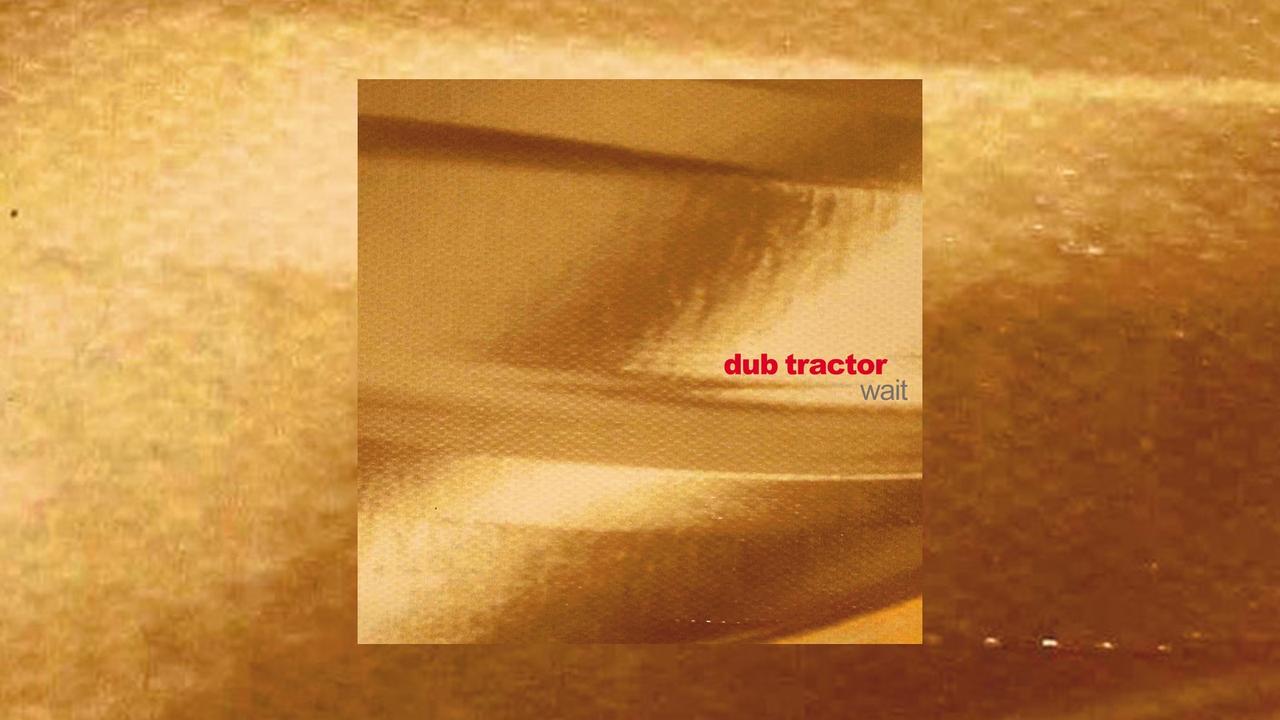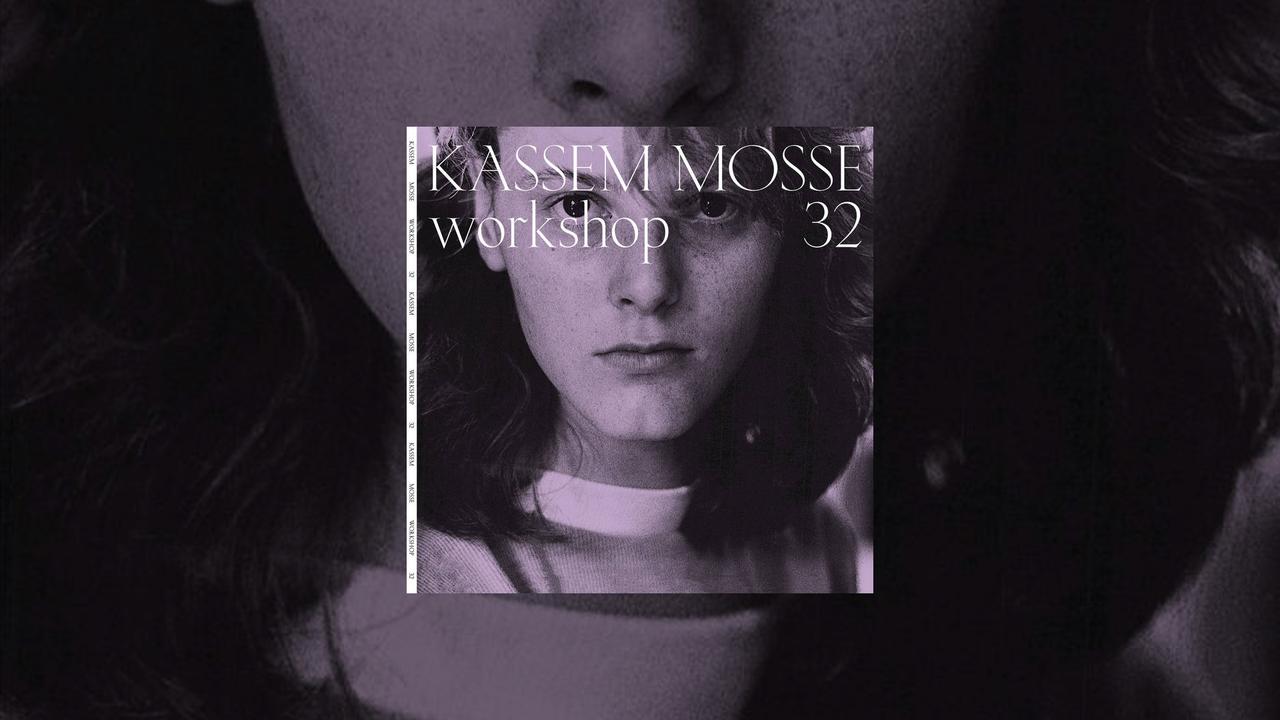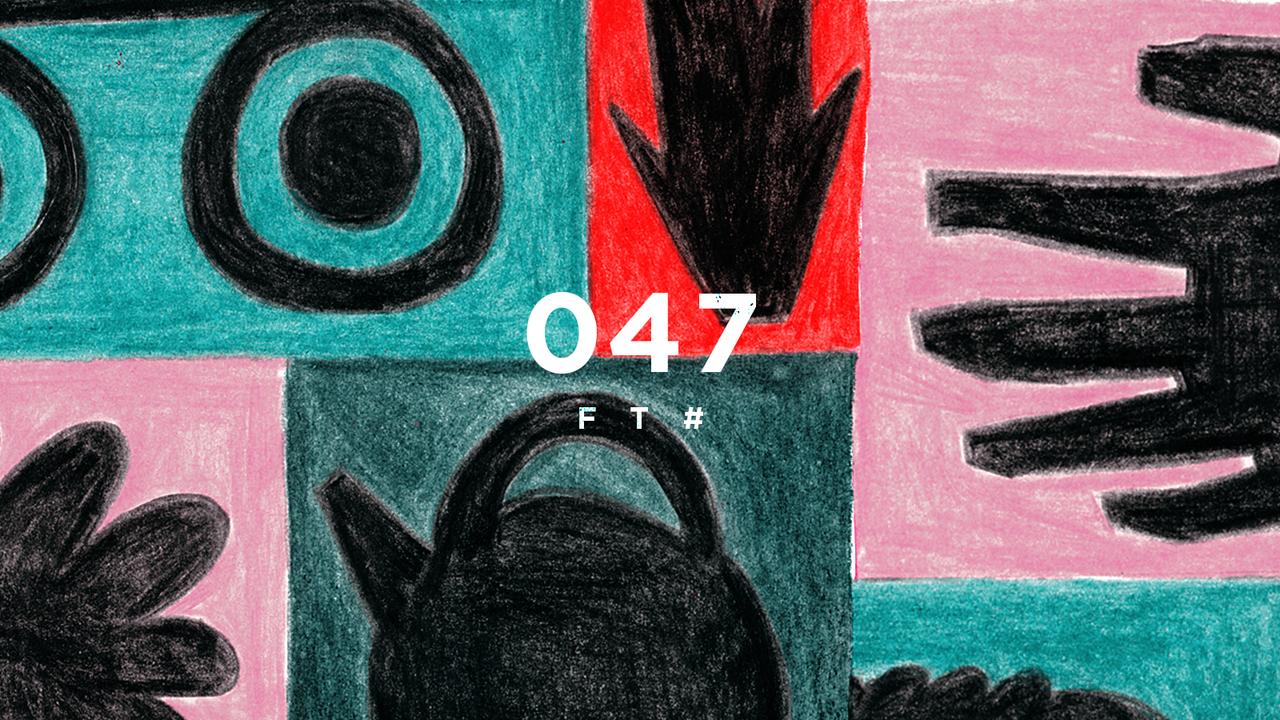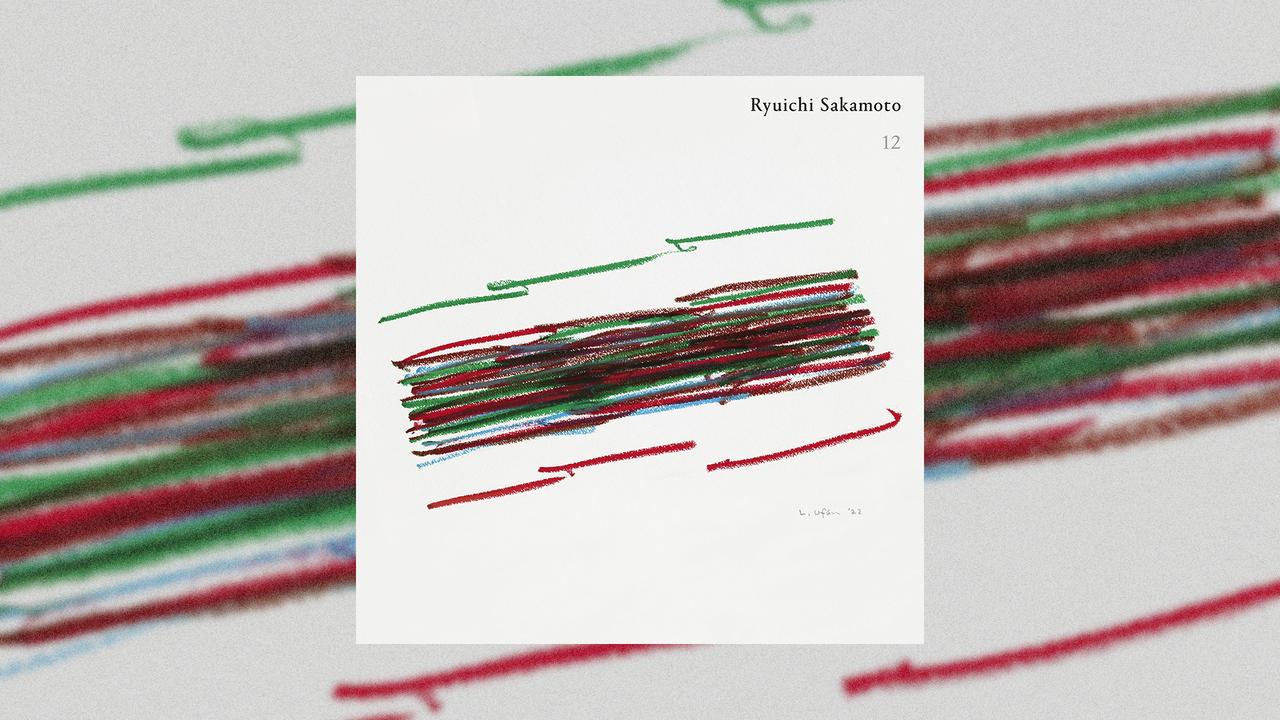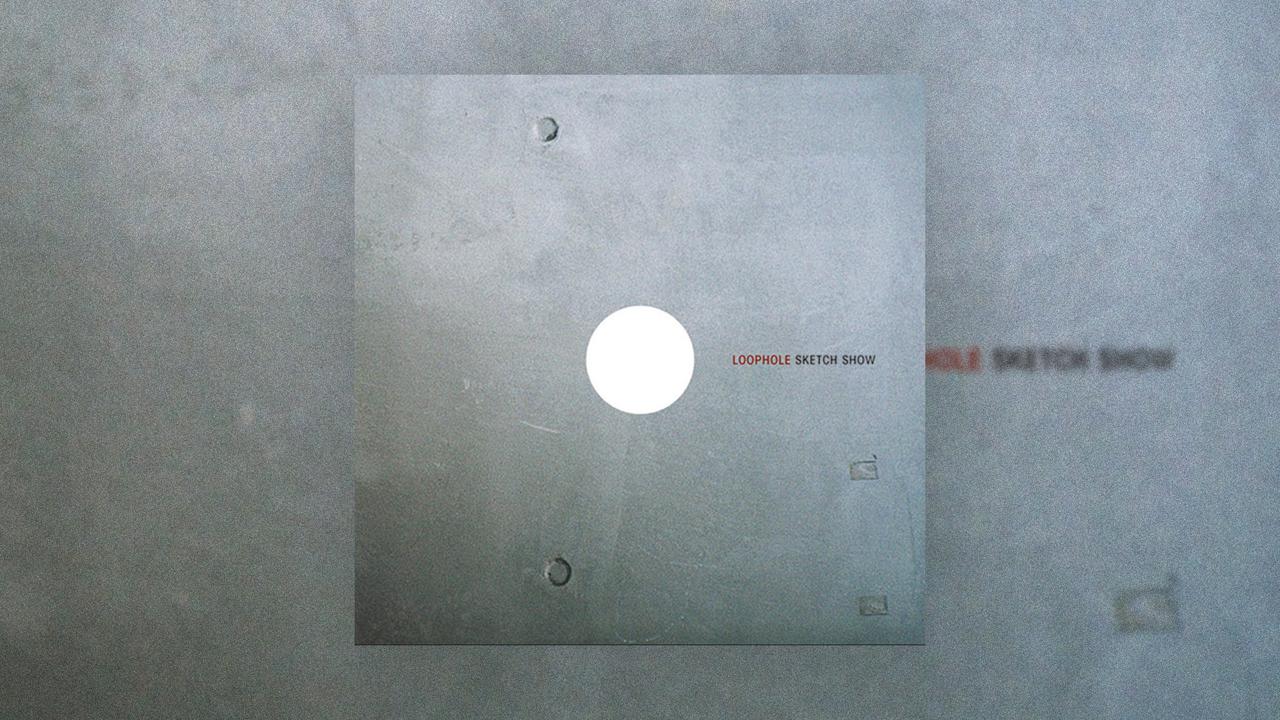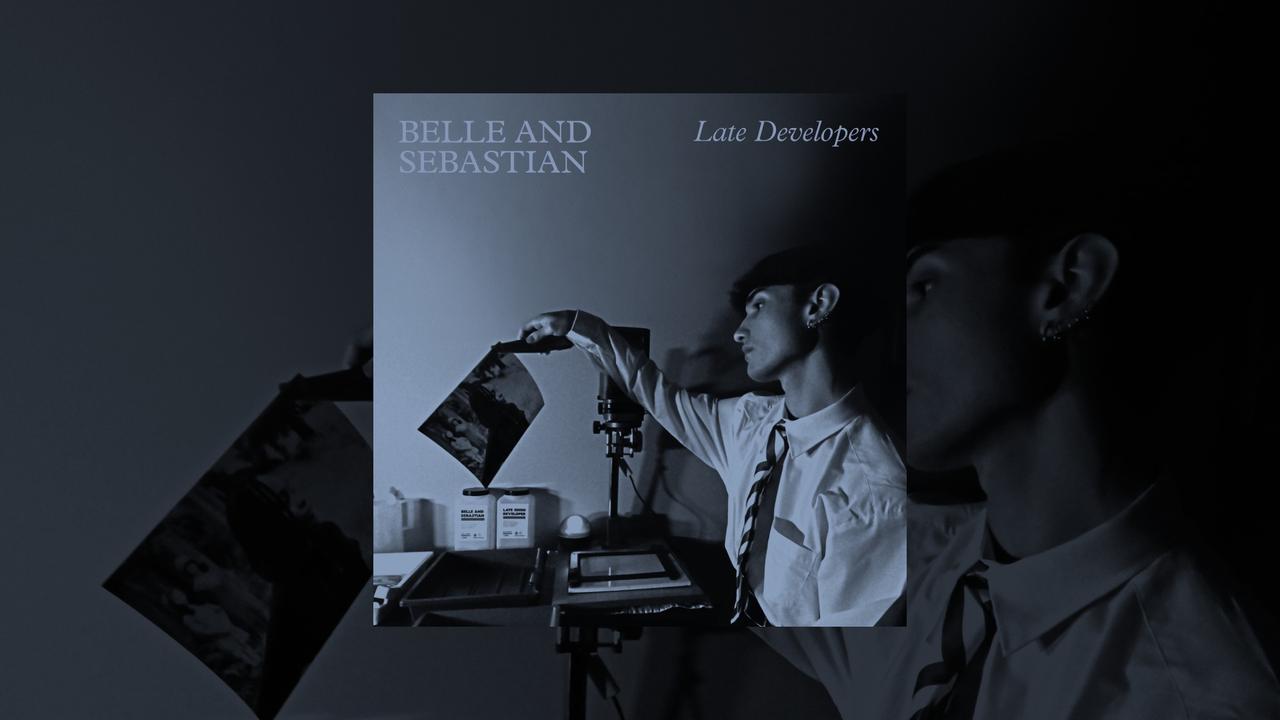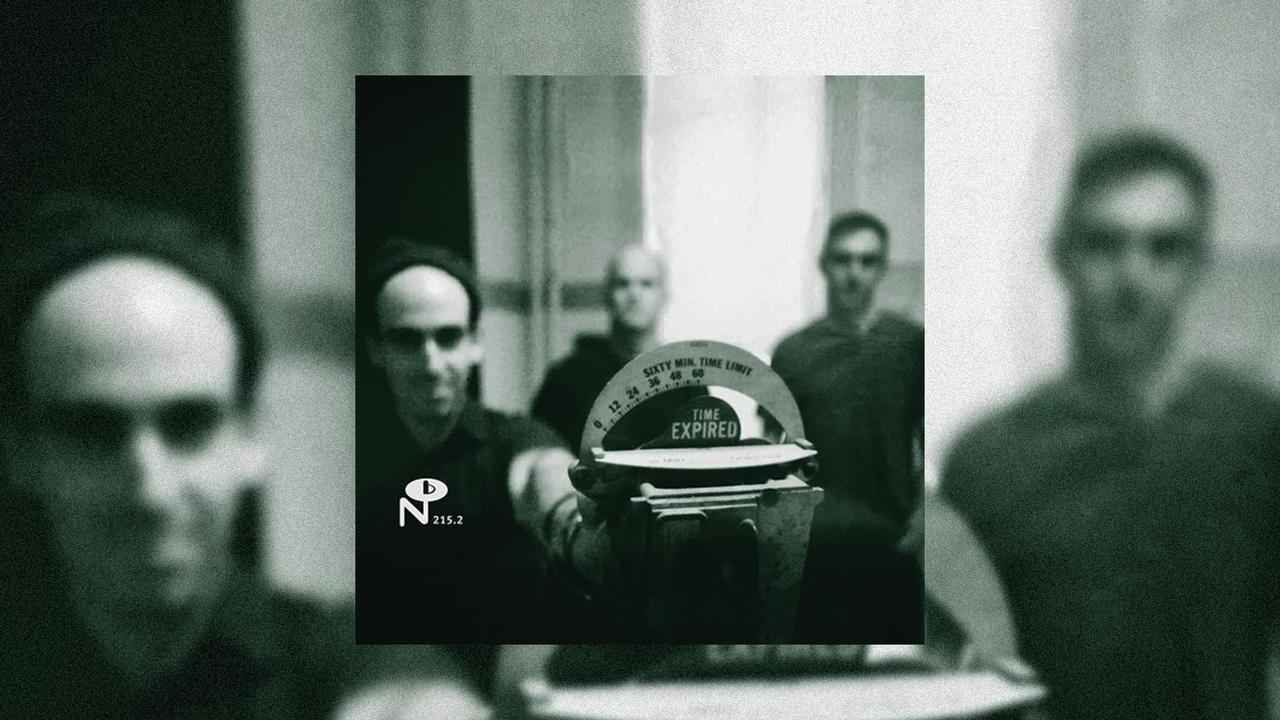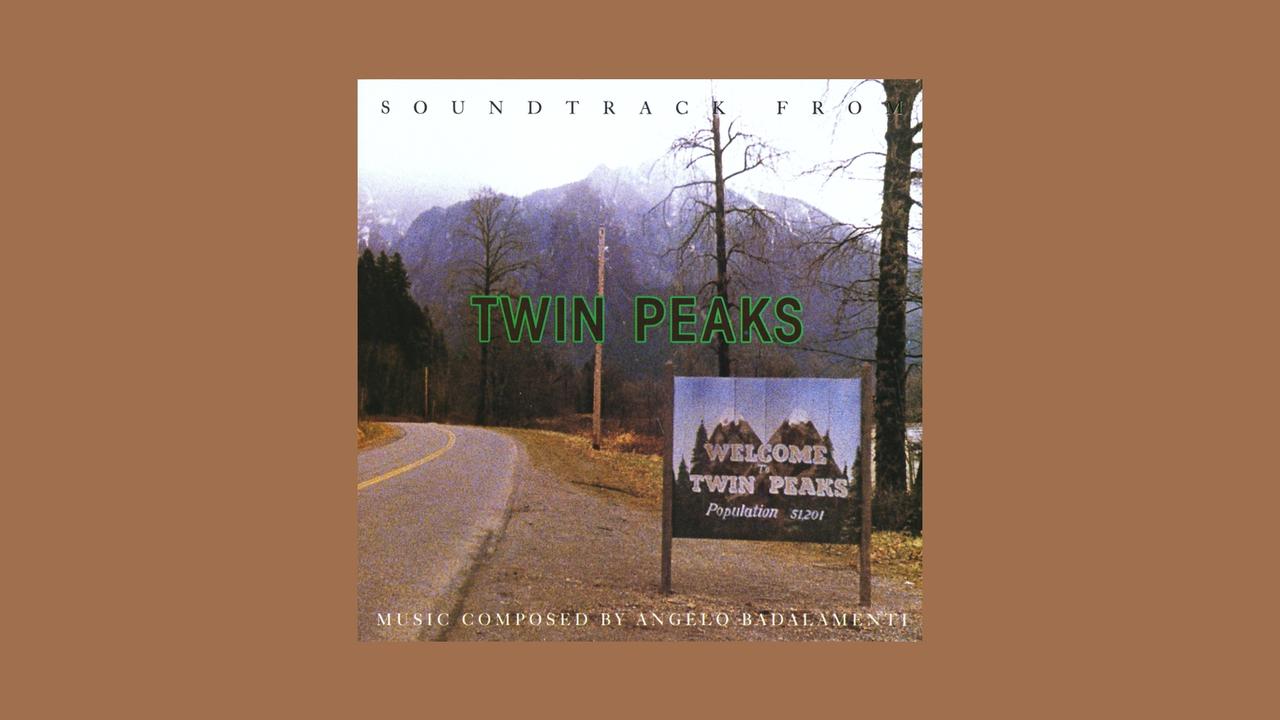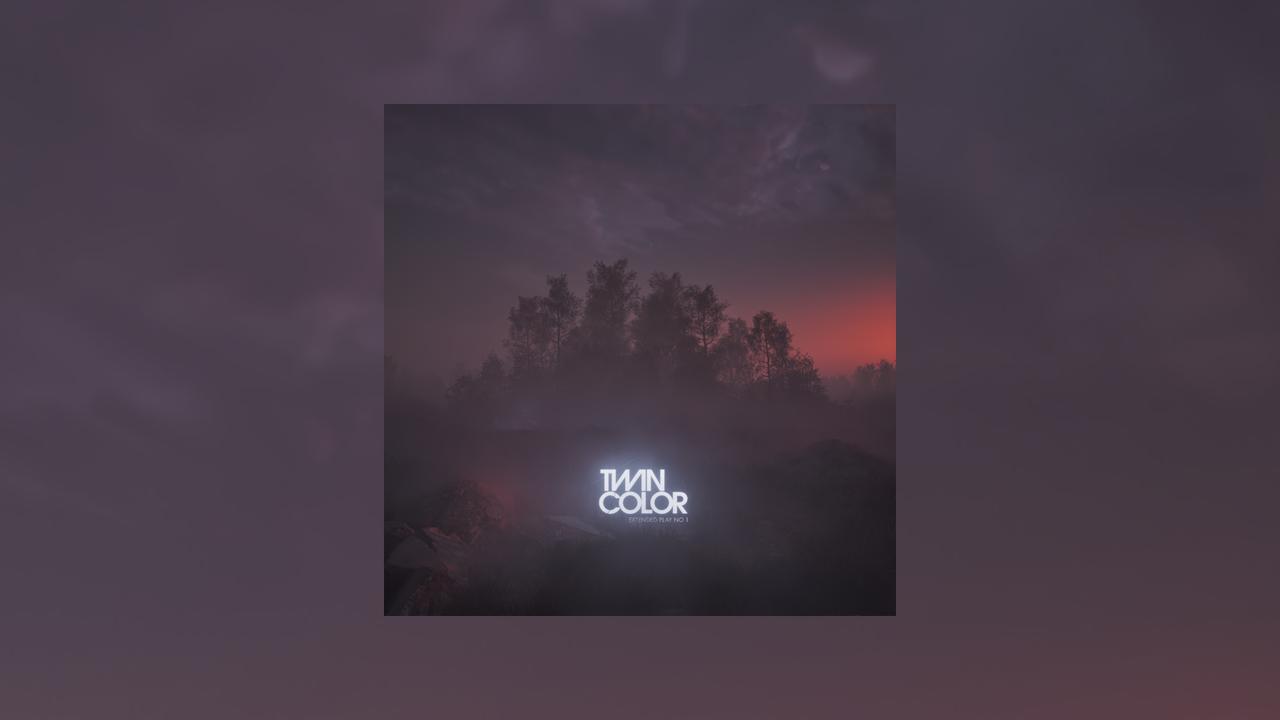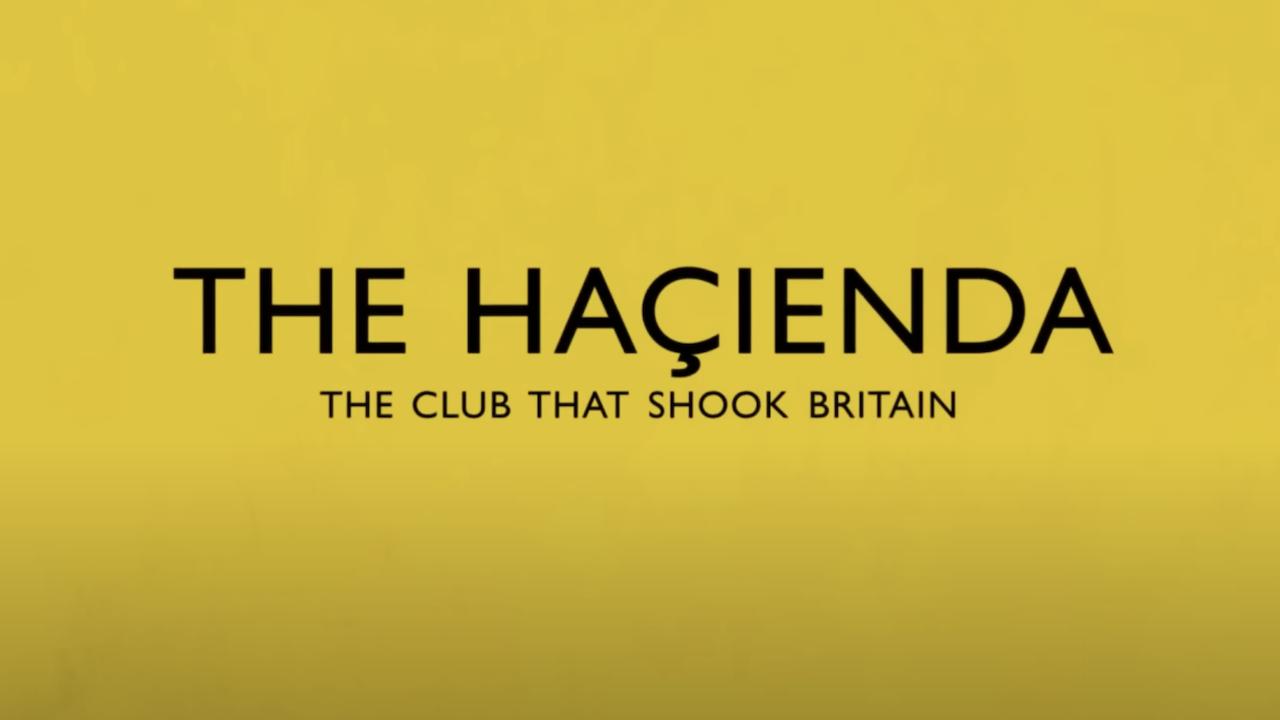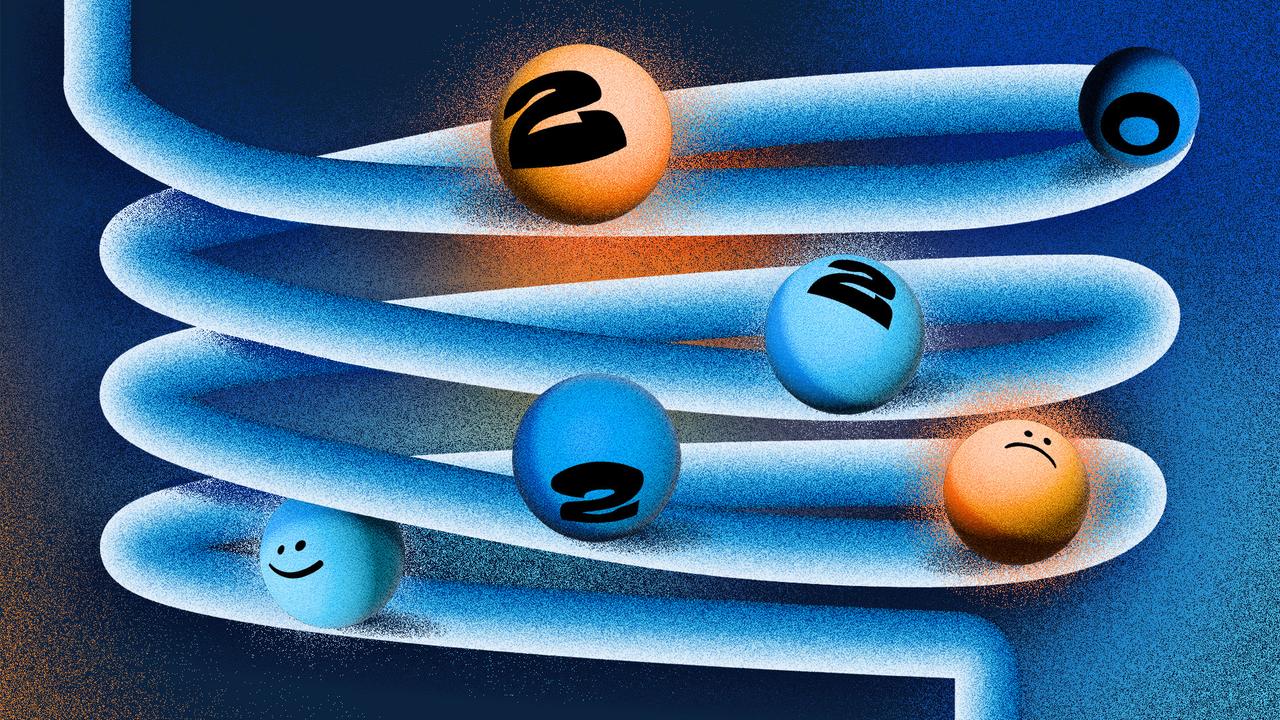Jóhann Jóhannsson - A User's ManualChapter 14 – The Theory of Everything (2014) – English
15.2.2023 • Sounds – Conversation: Kristoffer Cornils, Thaddeus Herrmann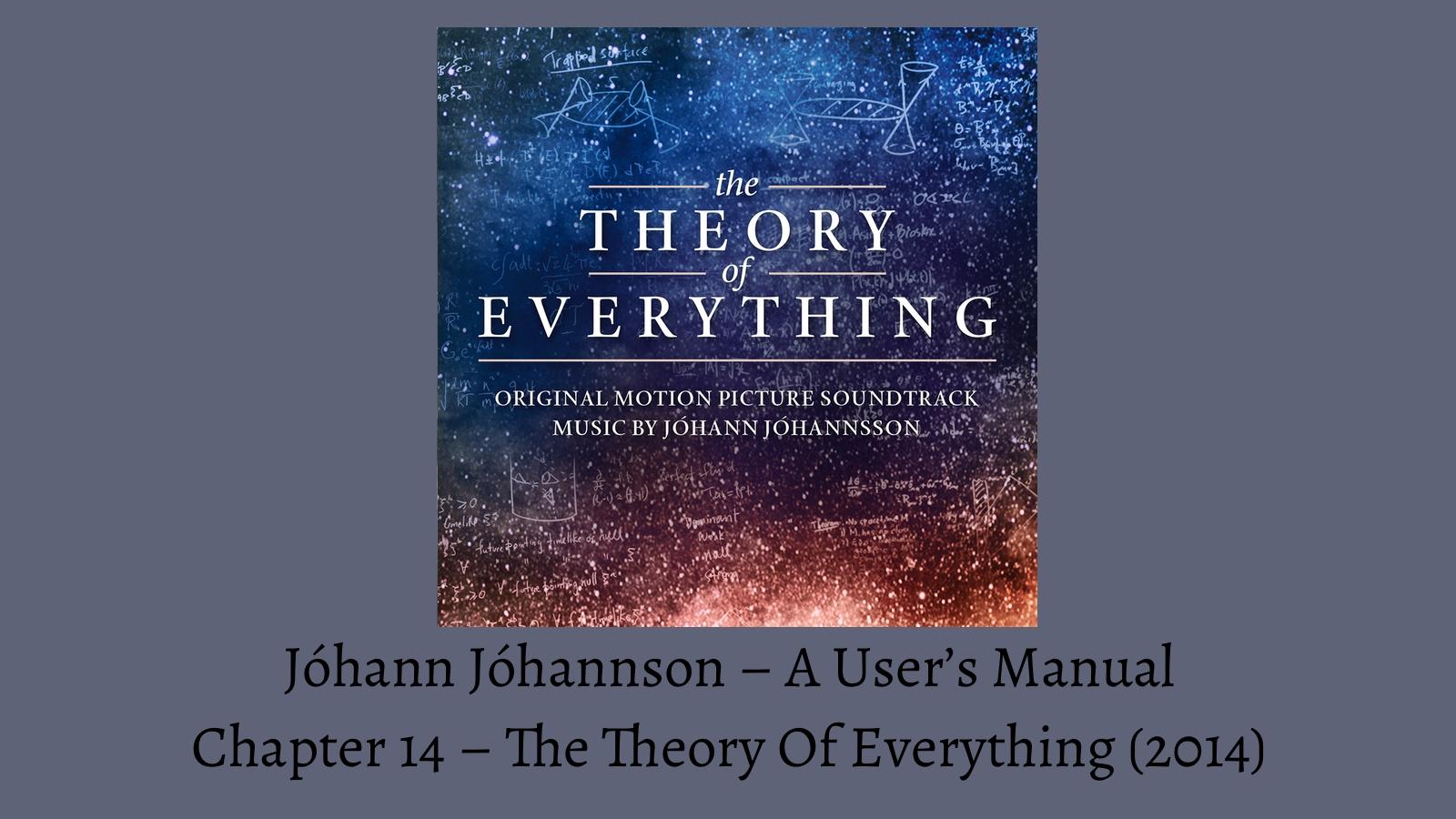
Jóhann Jóhannsson has released well over 20 albums over the course of his career. Who knows how much material that could be released posthumously is still gathering dust at this point in time. Kristoffer Cornils and Thaddeus Herrmann regularly review the composer's work—chronologically, album by album. In the 14th episode they discuss "The Theory of Everything" from 2014, the soundtrack to the Stephen Hawking biopic by James Marsh.
Deutsche Version? Hier klicken/tippen.
A young physicist falls in love with a literature student and, along the way, comes up with one of the ground-breaking theories of the second half of the 20th century. But the body in which this mind is at work is working against him. He survives longer than his doctors had thought, but his marriage breaks up and his health increasingly deteriorates. The story of "The Theory of Everything" was written by life itself and after Jane Hawking wrote it down in her memoirs in 2007, director James Marsh took that as the basis for a film to be scored by Jóhann Jóhannsson. The composer received one of the five OSCAR nominations for it, even though - or perhaps because - it was written in a completely different musical language than his previous soundtracks.
Kristoffer: SoHo House is the worst place in Berlin. There, social and financial capital fall into one, people with a coke habit indulge in their juice cleanse until the bar opens. I've been there a few times, checked out the record shop on the ground floor (forget it), had interviews (with whom, I won't say) and even had an accidental job interview (with the same person, even). On 11 November 2014, I was a bit more keen on going there than usual: I was invited to a screening of "The Theory of Everything". My path led me into the basement, along black walls - the nonsensical attempt to give the whole rubbish a simultaneously industrial/edgy and bourgeois/elegant facade, literally speaking. I briefly stopped in the toilet, where cosmic big ambient à la Emeralds was playing.
That alone was absurd enough, but I then proceeded to the cinema, a postmodern anachronism of lush velvet armchairs and lots of gold. Turns out, the film was pretty similar: overproduced and overbudgeted, looking as if it had been shot through an Instagram filter (2014, huh?) and, more importantly, based on the standard narrative of Hollywood kitsch: lots of lovey-dovey stuff, because no one can be expected to be interested in the story of a radical thinker unless a woman serves as the motivation. Ugh. The cinema wasn’t exactly crowded, but Jóhann Jóhannsson was among the few guests. After the screening he was talking to a few people in Icelandic and I didn't barge in à la "Hi, you shook my hand last year, remember me?". That was the last time I saw him up close. What I could have said to him, though: "Sorry about that film but the score is fantastic."
In the past two years it has somehow become a meme between the two of us that for some reason we each assumed the other had a completely different opinion about this music. But that's not true: we both love it. Just for different reasons, as we discovered at dinner the other night. What are yours?
Thaddi: Hold on. Before we talk about the music, I'd like stay at the SoHo House for a little while. I live in the neighbourhood and as a journalist I've been through numerous appointments and interviews there. Once I almost got kicked out because the receptionists didn't believe me that someone was actually waiting for me on the terrace. I loved that. I can only agree with you - and add the following: Detroit producers with dubious manners like to stay there. And: things could have been much worse. Imagine they had actually opened the club in the basement! Nowadays, fortunately, this space is being used for something else, and even sensibly. That’s cool. For everything else, please consult my memoirs once they are out.
The music then. First a few facts. You may already notice that I'm shying away from my own story with this album, which I've never told before. You’ll hear it here first! A 65-piece orchestra. Most of the score was recorded at Abbey Road Studios, the piano passages mainly at Air Studios. Jóhannsson himself said that the piano motif in the opener "Cambridge 1963" was the starting point for the entire soundtrack. Perhaps this information is decisive because I had not witnessed the composer so liberated from everything up to this point. For me, "The Theory Of Everything" not only marks a new chapter in his oeuvre. The music is still singular in its intimacy, openness, and vulnerability in his discography. For me, its vulnerability is particularly important. Because when listened to objectively, it is dripping with kitsch - a real crowd pleaser. But none of that matters, or rather it is really meaningful, at least for me.
Here's my story. When I received the promo files for this album, I was personally at the end of my tether. Beyond repair. I loaded them onto my phone and pressed play. It was winter and it couldn't be cold enough for me. Tears streamed down my face on my walks through the hostile city. And again and again I stopped. Left, right, straight ahead? I simply didn't know. It wouldn't have changed anything. Nothing mattered somehow. The unbelievably agile oscillation between... well, let's call it the easy and deep moments of this soundtrack helped me. Carried me. It's also the reason why I've never written a line about the music until today. Mined territory, so to speak. Too delicate, too personal.
When I think back to that time today, I see that the compositions not only helped me to "pick myself up" again. At that time, it was out of the question for me to ask for or receive help. Looking back, that was of course a mistake or simply stupid. But that's how it is. In the meantime I have become smarter. Considering all this, "The Theory of Everything" remains an album that I find difficult to talk and write about. I associate too personal things with the music, a phase of life that I actually didn't want to experience anymore, but then did experience again. And with professional help I got it together much better. So this album is pure power. I can't argue with that in any meaningful way. But I know you understand what I mean. And now it's your turn again.
Kristoffer: This is a story that is as beautiful as it is… the very opposite of that, for obvious reasons. We didn't know each other personally at the time - or at best "from reading each other", as it's called in our industry - and I only rang at your doorbell for the first time almost a year and a half later to talk about music with you and Christian. Which also always meant that after our work was done, we spoke about Jóhannsson.
Jóhannsson's music provides support and hope when the ground slips from under your feet and the horizon tilts. I can't say that I would have felt the same way about "The Theory Of Everything" as you did. In my case that was "The Miners' Hymns" as a whole and "The Cause of Labour Is the Hope of the World" in particular.
Autumn 2014 certainly wasn't the best time of my life either, though. And this brings us to the beauty of Jóhannsson's music, which your story illustrates so poignantly: it can provide support and hope when the ground slips from under your feet and the horizon tilts. I can't say that I would have felt the same way about "The Theory Of Everything" as you did. I think in my case that was "The Miners' Hymns" in general and "The Cause of Labour Is the Hope of the World "in particular.
Anyhow, yes, the music. You say that this soundtrack would mark a new chapter in Jóhannsson's oeuvre. I don't understand that, or would simply disagree. Isn't this score actually a complete anomaly in his work? Next on our list we have "I Am Here", the OST to "Sicario", "End of Summer" and finally his quasi-comeback album "Orphée" - none of which have anything in common with "The Theory Of Everything", if you ask me.
No, I think that the strength and radiance of these 27 (!) pieces derive from the fact that they are rather isolated from Jóhannsson's other work. Of course there are some motifs and ideas, compositional preferences and specific sounds, that we have known from his work since "Englabörn" or "And In The Endless Pause There Came The Sound Of Bees" and that are still present in subsequent works. But in terms of mood and style, "The Theory Of Everything" is very singular, isn't it?
Therein, at least, lies its strength for me, which is why this so-close-to-kitsch commissioned work for a really terribly stupid film works so wonderfully well; precisely because it makes concessions to the conventions of the classical soundtrack. The orchestra, or rather traditional solo instruments for such Hollywood productions - piano, piano, piano with strings on top! - take precedence over all the experiments he would have been capable of and devoted himself to in his work on Denis Villeneuve's auteur blockbusters.
"The Theory Of Everything" is pure doctrine, an almost standard soundtrack that works masterfully with leitmotifs and atmosphere. You used the term "liberated" to describe it, and I fully agree with that, but I would only add that this freedom was born precisely out of the constraint of having to deliver something very conventional. But maybe that's exactly what you meant?
For me, the album marks a tipping point.
Thaddi: Since you don't own a couch, I suggest to bring a bring a blanket next time I come over, lie on your bed, and surrender to your questions and notes. I do agree. Jóhannson never recorded an album like that again. It's interesting because - as you rightly say - in his body of work we observe motifs and ideas that pop up every now and then, sanded down and adapted to circumstances. "The Theory Of Everything" stands out and understanding of the "soundtrack principle" makes it a milestone, at least for me. The conventional sounds sound just like that on the surface, conventional. A great throw on the one hand and perhaps a clever trick on the other. In fact, we hear compositions, arrangements and pieces in a mood that composers certainly carry within themselves, but perhaps because of their more or less painstakingly built reputation - consciously or unconsciously - never allowed or wanted to allow themselves to indulge in them in such a way. For me, this marks a tipping point.
What does "conventional" mean? Great moments? Atmosphere? Emotions? Yes. However, these parameters are not enough. For average film music they are, but Jóhannson is not the average OST composer. I think he sees the images, understands the potential of the film and counters it with music. Something that works wonderfully on the surface, orchestrating the images perfectly but abstracting them at the same time. For me, this soundtrack is an example of sublimity that follows classic, tried and tested formulas, but still goes beyond them. The emotions are more obvious than on other albums. This, of course, makes Jóhannsson vulnerable. But I imagine I understand why and, more importantly, how he accomplishes this. With big ideas that were recorded before the all-encompassing reflection of his own artistic chutzpah became important.
Kristoffer: The sublime is a nice keyword because it is so big and complicated since it can mean so many different things. For me, the word is associated with notions of gravitas, greatness and weight. These can certainly be applied here in one way or another, but they would only describe one side of the coin. The other is characterised by light-footedness, modesty and subtlety. In my opinion, this ambivalence makes "The Theory Of Everything" a great work, and I use that term precisely because Jóhannsson seems to have conceived it that way: a coherent whole. It’s not a compilation of music meant to underscore some scenes, rather he seems to have actually constructed a continuous album here, that is, a narrative, and was compositionally ready to realise it while at the same time making concessions to the images. Because while the images—or at least the script, storyboard, whatever he was working with—have certainly provided the initial spark, this music tells a far greater story. As a soundtrack, it is a Trojan horse: the composer checks off all boxes on the Hollywood score bucket list and meanwhile pushes through his very own vision. That makes "The Theory Of Everything" a sort of final statement, and so maybe I do agree with you about opening a new chapter: by being able to close this one for himself, he had won all kinds of freedoms, the kind that have marked the rest of his career. In a way, I think we owe such feats as “Arrival” to this work—Jóhannsson had finally und indisputably proven himself, won over the ears of the world, and could eventually do what he considered to be his real job: to turn sound in the context of a film into a free radical.
